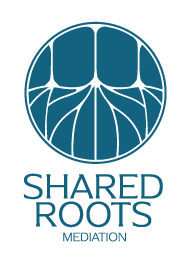Mission
Shared Roots seeks to address sexual harm by providing conflict resolution and reconciliation services anchored in the principles and purposes of restorative and transformative justice.
Vision
Shared Roots envisions healing the trauma experienced by sexual harms through restorative and transformative justice processes.
Objectives
We will provide a haven for persons affected by sexual harm.
We will offer time for healing, connection to community, and opportunities to seek accountability for the harm done.
We envision opportunities for communities, organizations, and companies to disrupt the hold of the criminal legal system over incidents of sexual harm.
“How do we get to the outcome of healing, accountability, and restoring right relationships? It comes from the roots and the principles of Restorative Justice. Focusing on interconnection, inclusion, equity, respect, and compassion.”
Christine Evans, Principal Director
Our Services & Programs
All of our services at Shared Roots begin with survivor support and engagement, centering the persons who have experienced sexual harm in our trauma-informed care. Starting with an initial intake and ongoing consultations, survivors can share their story on their own terms and be heard in a non-judgmental space
Survivor Engagement & Support
Educational Training
Education is a cornerstone of our mission. We offer education, training, and consulting to help teams, organizations, and communities integrate restorative practices into their spaces and services whether they are seeking to prioritize prevention and a culture of respect and safety or grappling with their own sexual harm incidents.
Land Acknowledgement
Shared Roots Mediation acknowledges that we operate on the traditional lands of the Council of the Three Fires: the Ojibwe, Odawa, and Potawatomi Nations, as well as the Myaamia, Ho-Chunk, Menominee, and other Indigenous Peoples who have been the stewards of this land for generations. The land we are on is known as Turtle Island.
We pay our respects to their elders, past and present, and express gratitude for their continued custodianship of the land, waterways, and resources. We recognize the historical and ongoing impact of colonization and strive to be mindful of our role in reconciliation.
As we work towards healing and building connections within our community, we commit to learning from and supporting the Indigenous Peoples who call this land home.







